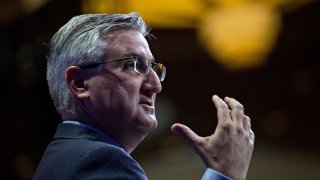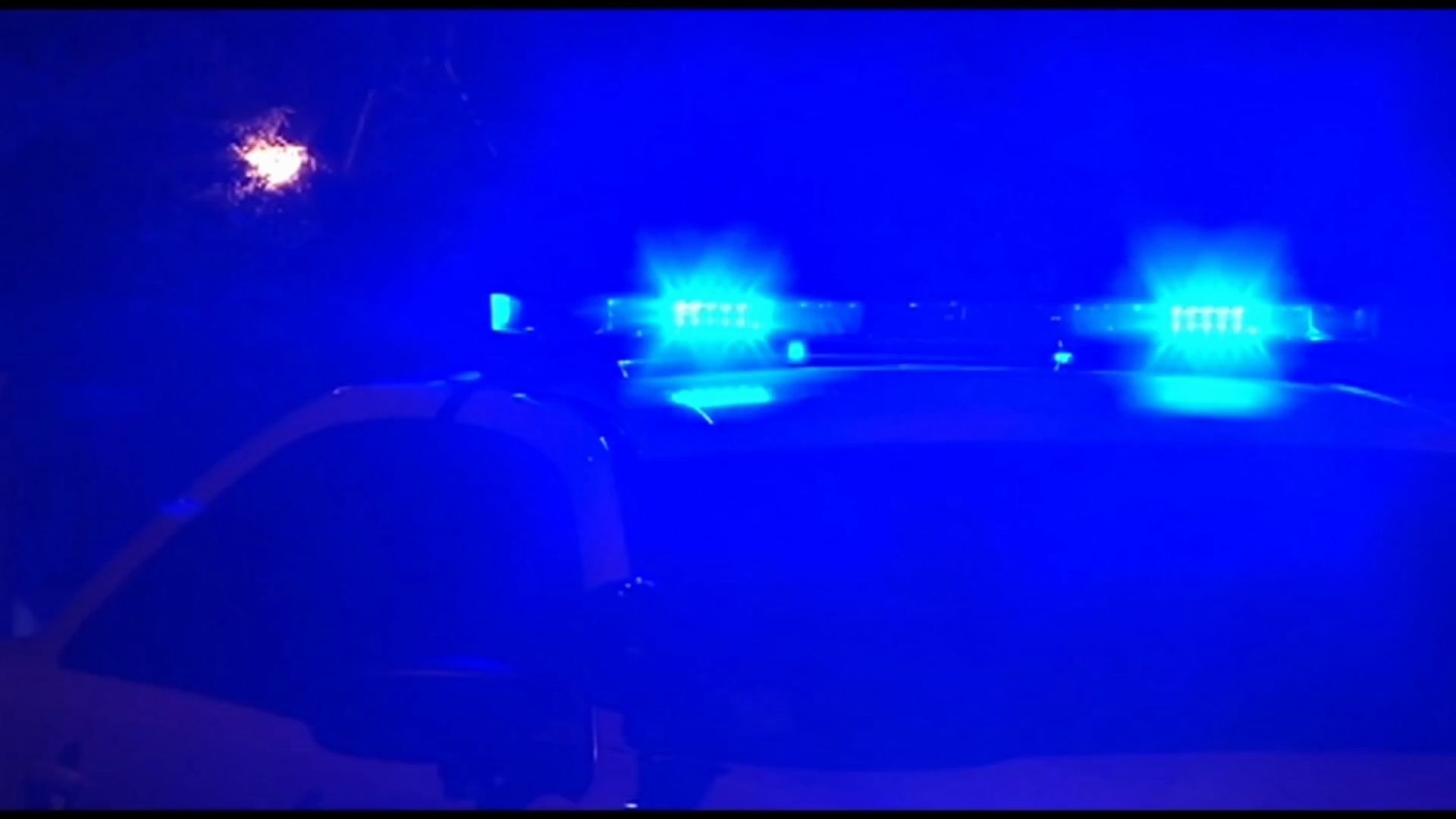
The day after a landslide reelection victory, Republican Gov. Eric Holcomb said he’s not making any changes to policy on handling COVID-19, a major point of contention on the campaign trail.
There's “no truth” to rumors that Indiana will shut down again after the election, he said during a Wednesday afternoon briefing on the pandemic. That includes no changes to the state's economy, and no statewide closure of schools.
Holcomb won a second term as governor on Tuesday, defeating Democrat Woody Myers, a former state health commissioner. Myers had called for tougher anti-virus actions as Indiana’s COVID-19 hospitalizations, deaths and new infections climbed steeply since nearly all state restrictions were lifted in September. Alternatively, some conservatives called Holcomb’s coronavirus actions excessive and, instead, backed Libertarian candidate Donald Rainwater.
The governor has continued to resist calls for reinstating coronavirus limits, however, emphasizing Wednesday the preference for health officials to address virus spread at the county level and adding that “we just don’t make decisions based on politics.”
“I don’t think the frustration or the the impatience with getting through COVID-19 is partisan whatsoever.” Holcomb said. “We’re making decisions based on the common good, and trying to get us through this as safely and swiftly as possible. It has zero to do with political capital or election results with me.”
Indiana’s newly reported COVID-19 cases have risen to their highest single-day level of the pandemic, state health officials said Wednesday as the number of coronavirus patients being treated at Indiana hospitals also climbed to a new high.
The 3,756 new coronavirus infections reported Wednesday by the Indiana State Department of Health surpassed the 3,649 new infections the state agency reported on Oct. 29.
Local
Holcomb doubled down Wednesday that mask-wearing will help the state slow virus spread and maintain available hospital beds, but state health commissioner Dr. Kristina Box said hospitals and healthcare workers in Indiana are already swamped, “needing support now more than ever.”
“The greatest strain right now is on our hospital workforce, which is in the ninth month of responding to this pandemic, and facing the greatest patient load yet,” Box said. ”They are, frankly, exhausted."
The health department's daily statistics update showed that Indiana had 1,897 patients hospitalized with COVID-19 as of Tuesday. That's the largest number the state has seen since officials began releasing those counts last spring, early in the pandemic.
On Tuesday, the health department had reported that Indiana had 1,867 COVID-19 hospitalizations — a number that surpassed the previous peak of 1,799 COVID-19 hospitalizations reported on April 13.
Box said Wednesday that from Sept. 15 to Oct. 25, Indiana saw a more than 200% increase in the number of new COVID-19 cases. Hospital admissions, too, have “increased significantly," as the trend continues now.
That's in part a result of some Hoosiers, notably in counties with the highest rates of COVID-19 spread, “who just don't believe in mask-wearing,” Box said. As of Wednesday, 74 of Indiana's 92 counties were designated as higher-risk locations for coronavirus spread — the most since state officials implemented a rating system in September.
Holcomb said Wednesday he's not considering enforcement measures around masks, citing too few state police officers and issues with “effectiveness." Instead, decisions about punitive measures will remain left up to local officials, he continued.
State health officials also added 25 more coronavirus-related deaths to Indiana’s pandemic toll, raising it to 4,464, including confirmed and presumed coronavirus infections. Indiana's seven-day rolling average of daily deaths stood at 27 on Tuesday, representing one of the highest levels since May and nearly double from a month ago, statistics showed.



